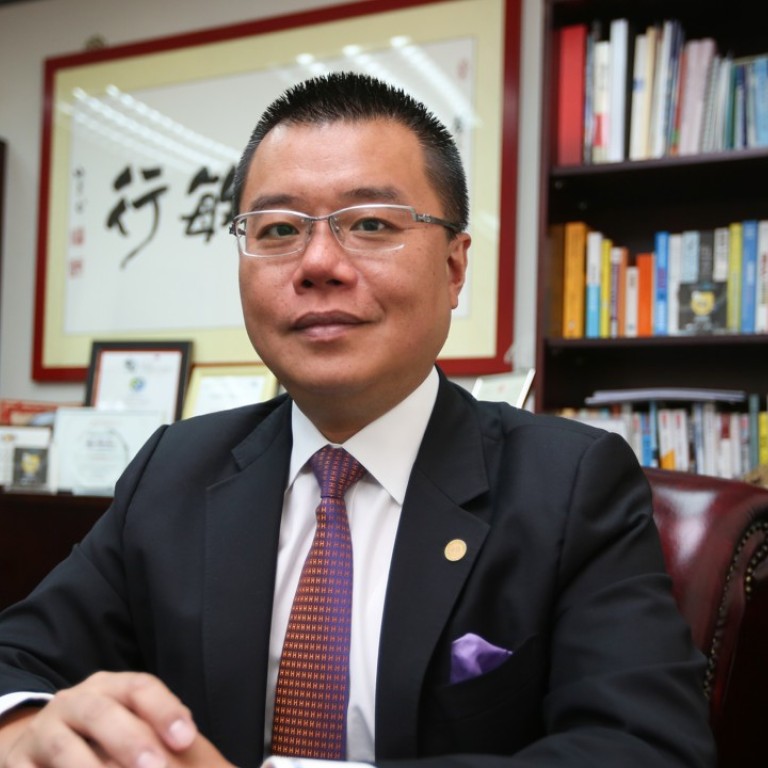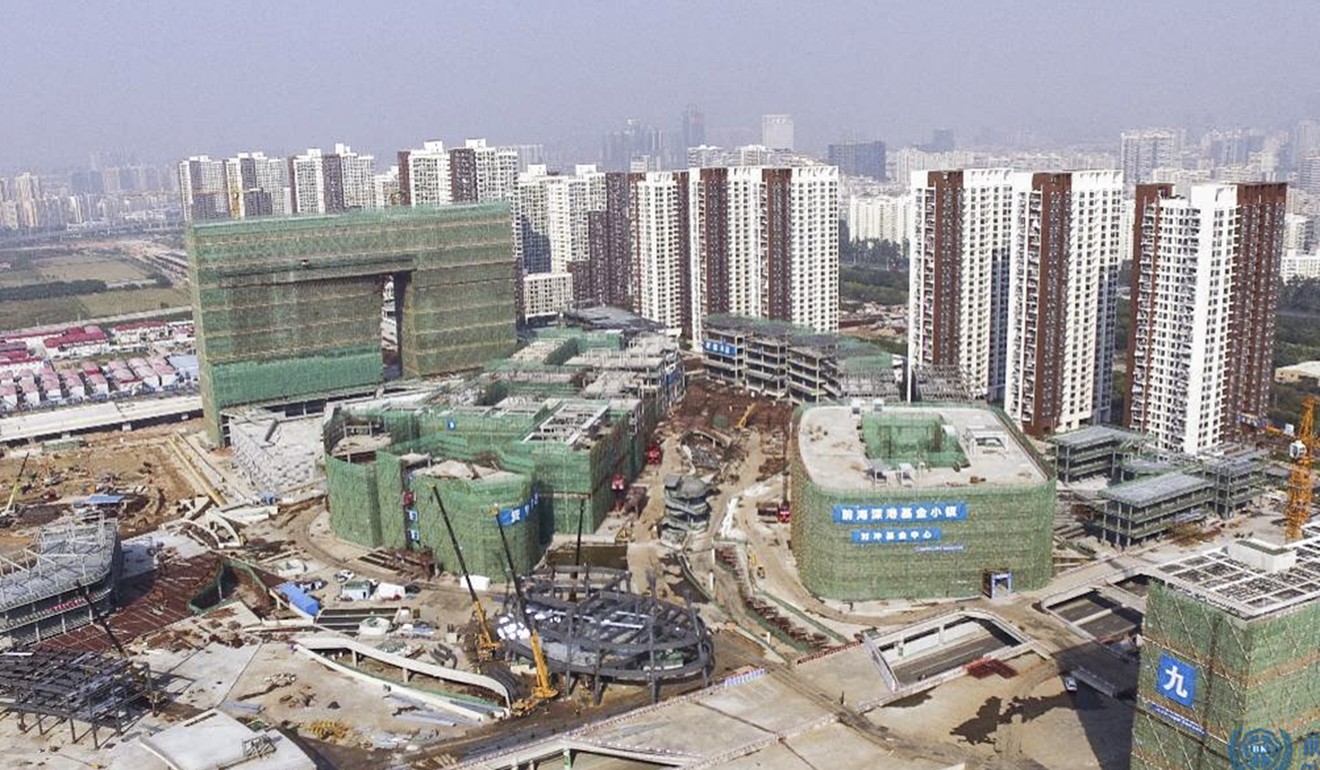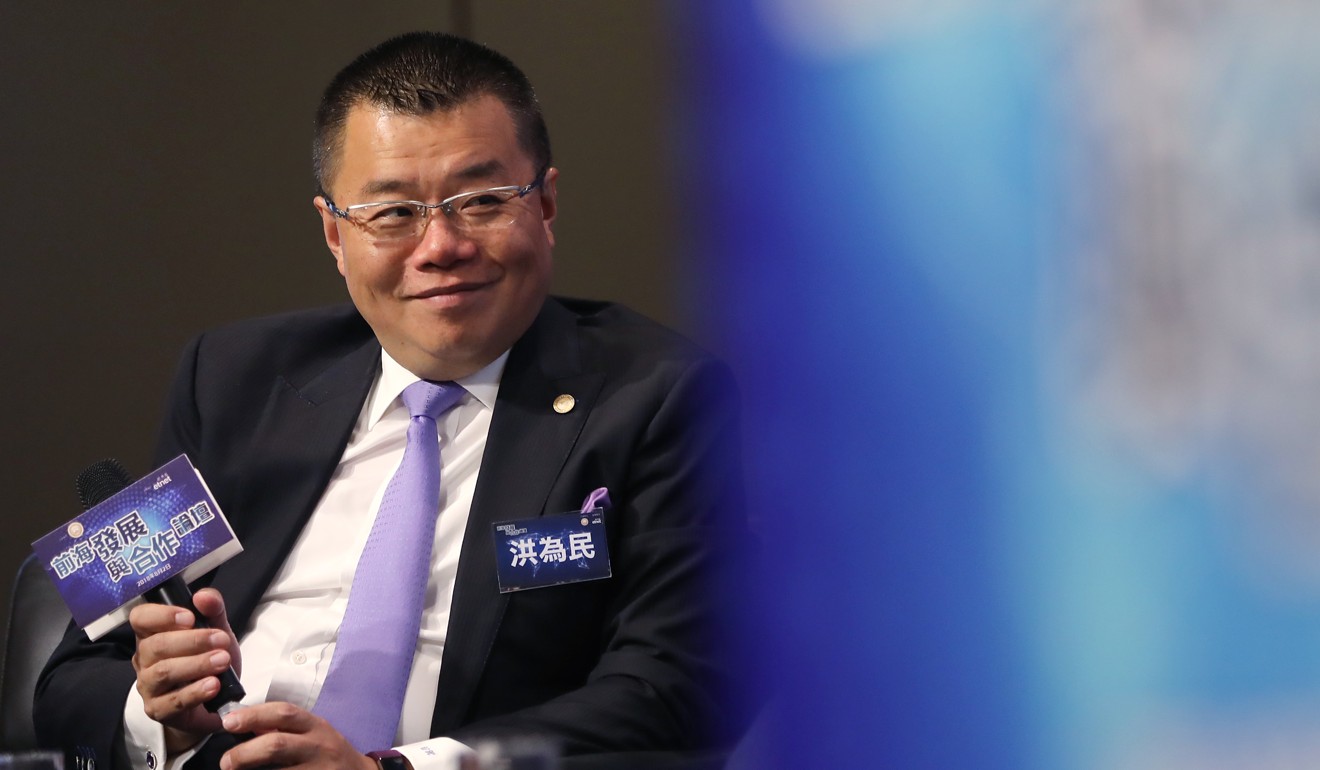
Having Hong Kong jurors in Greater Bay Area courtrooms would boost investor confidence, says senior official
Shenzhen official Witman Hung believes city’s residents will bring with them an expertise in judging business cases
Witman Hung Wai-man, principal liaison officer for Hong Kong of the authority of Qianhai, made the remarks after the Qianhai court released an action plan aimed at improving the district’s business environment by enhancing the legal system.
Qianhai, a 18 sq km financial district containing a 3.7 sq km free-trade zone at the southwest waterfront of Shenzhen, was the second special economic zone in the mainland where Hong Kong residents could become jurors, following the court in Nansha, Guangzhou.

Disputing business parties can also choose to have their cases mediated or judged according to foreign laws in the Qianhai court.
Hung, who is one of the 32 Hongkongers serving the Qianhai court, said the jury system should be extended to the cities in the Greater Bay Area – China’s answer to Silicon Valley – which Beijing plans to build with the collaboration of 11 cities including Shenzhen, Guangzhou, Hong Kong, and Macau.
“I personally recommend [other courts to invite Hongkongers as jurors] for business disputes involving Hong Kong stakeholders,” Witman Hung Wai-man told the Post.
“The advantages are that, firstly, Hong Kong jurors are more experienced in handling business disputes, and secondly, they are more credible [in the eyes of the Hong Kong parties in the cases].”
He added that allowing disputing parties to settle their cases in Qianhai according to Hong Kong laws had helped boosted investors’ confidence.
40,900 new firms set up in Qianhai zone but Hong Kong broker tenants still in short supply
However, Hung said it would be easier to limit the introduction of Hong Kong jurors to business disputes.
“The legal system in the mainland is very different from that in Hong Kong,” Hung said. “For example, criminal cases [across the border] could be very complicated. Whereas in business disputes, many principles of judging are actually common sense.”
As of April, the Qianhai court had 32 Hong Kong jurors, who heard a total of 94 cases over the past two years, according to a report by the court.
Since it was commissioned in February 2015 the court handled 3,100 cases involving Hong Kong stakeholders, accounting for 18 per cent of all the 17,213 cases it heard.
Among the jurors were Hung, and a number of professionals in sectors ranging from law to finance.

In mid-2016, Francis Law Wai-hung, president of the Hong Kong Mediation Centre, was appointed along with Hung and 11 others as the first batch of Hong Kong jurors.
A second batch of 19 members were appointed in February, including law professor Xi Chao at Chinese University, and assistant law professor Peter Chan Chi-hin at the City University.
Hung heard two cases over the three years and both cases involved Hong Kong companies. Unlike the jury system in Hong Kong, jurors sitting in a Qianhai court have their personal information, including ages, educational qualifications and professional titles, disclosed to the public.
Hung said it was understandable because in the Qianhai court, jurors form collegial panels with judges.
“We heard the cases and made decision on the verdicts together,” Hung said.
Hung said he was paid 2,000 yuan (HK$2,300) for helping with one case while his mainland counterpart was paid only a few hundred yuan.
Qianhai tipped to develop into world’s fourth largest core business centre
Staff of the Qianhai court would send the Hong Kong jurors a roster inviting them to work “about once a month and one to two weeks before the hearing sessions”, according to Hung.
“If the jurors were too busy to take the assigned slots, the staff would have to help coordinate and make changes,” Hung said.
Meanwhile, Qianhai court pledged in its action plan to study a mechanism to transfer cases involving businesses in the Greater Bay Area to and from courts in Hong Kong and Macau.
It also proposed promoting the development of a civil jurisdiction covering the whole Greater Bay Area, without providing further details.

